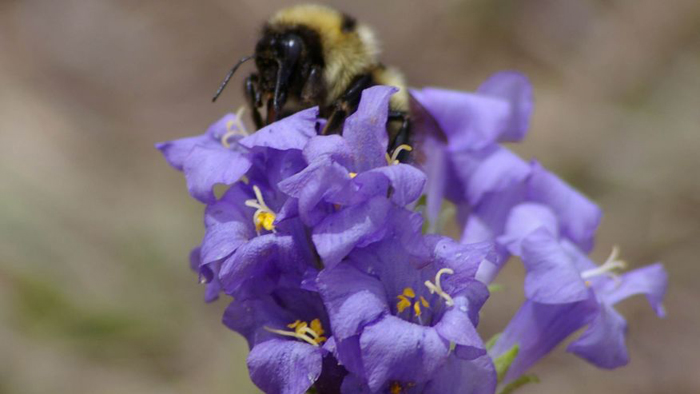In one of these species, the tongue had been half the size of the bee`s body — the equivalent of a human tongue going down to the waist. But because the flowers where the long tongue is required have dwindled, the bees didn`t need that much tongue. Keeping long tongues requires bees use more energy, so the bees evolved a shorter tongue that allows them to sample a wider variety of flowers, said study lead author Nicole Miller-Struttmann at the State University of New York, Old Westbury.
While biologists have tracked how global warming has altered the developmental, migration, timing and other behavior in plants and animals, what makes this study unusual is the physical changes in the bees, said study co-author Candace Galen at the University of Missouri.
"It speaks to the magnitude of the change of the climate that it`s affecting the evolution of the organisms," Galen said. "It`s a beautiful demonstration of adaptive evolution."
Sydney Cameron at the University of Illinois wasn`t part of the study, but praised it as well conducted and significant for the ecosystem of mountain flowers.
The team of biologists studied the bees on three isolated mountaintops in the Rockies, where they had been the most dominant species around. Not so much anymore, Miller-Struttmann said. The longer tongued of the two bees, the golden belted bumblebee, shrank from 50 percent of all the bees to 20 percent, she said.
Because these were so isolated and so high — more than 10,000 feet — pesticides and pathogens, often blamed for bee declines, weren`t a problem, the scientists said. Something else had to be an issue. They compared the bees to those of 40 years ago or more and found the tongues dramatically shorter.
They also found that the temperature in the area had warmed by about 3.6 degrees since the 1960s and the type and amount of flowers had changed.
At first, the scientists figured the flowers were evolving with the bees, as often happens over long time periods in nature, but Miller-Struttmann said that`s not the case.
"The silver lining is that (the bees) are evolving very quickly," Miller-Struttmann said. "The story may not be as rosy for the flowers."
Galen worries that without long-tongued bees, some flowers will falter. Also, she said shorter tongue bees often "cheat" and bite a hole in the flower`s side, which doesn`t help the plant spread its seeds.
More about:
















































